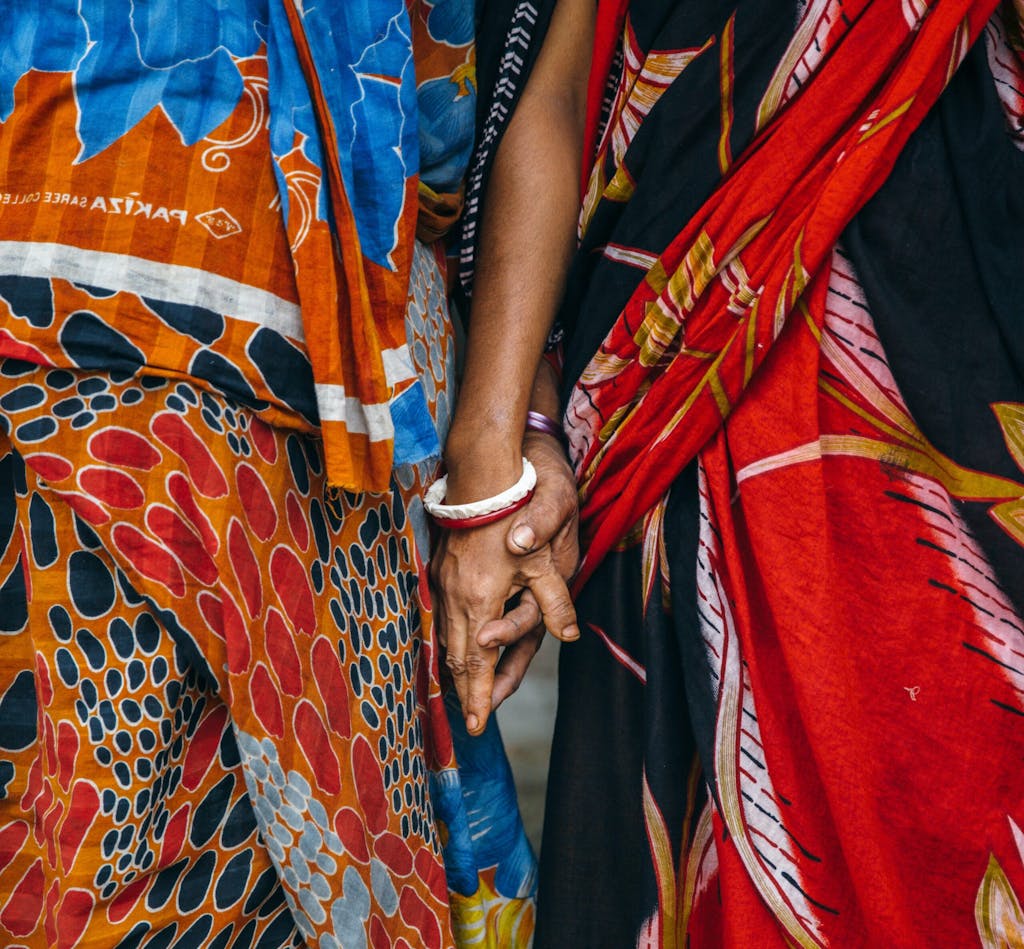You probably follow Food for the Hungry (FH) because you care about people. Maybe you are also interested in global poverty or economics. You might use child sponsorship to teach your family about other countries. Or FH might be your way of connecting to people who are from another culture. You support our work because you want to make the world a better place.
If that’s you, you will likely enjoy the five podcast recommendations below. All of the audio episodes somehow relate to culture, poverty, or global affairs. My goal in 2019 is to expand my cultural intelligence and consciousness of others. These podcasts are a great way to start, and you can even do so by easily listening during your daily work commute.
Code Switch
What is it? One of my favorite podcasts for learning about culture, race, and identity is NPR’s Code Switch. In fact, the hosts are Gene Demby and Shereen Marisol Maraji, journalists of color who blend humor and serious discussion to tackle tough topics with honest analysis that is both educational and enjoyable.
Recent episodes include: “The Cost to Cast A Ballot,” “Talk American,” and “Amara La Negra: Too Black to Be Latina? Too Latina To Be Black?”
Why listen? Because Code Switch immerses you in cultures, communities, and conversations that you know are relevant. And Code Switch introduces you to those that had been unfamiliar. So if you listen to be challenged, you’ll come away a little more conscious of the diverse cultures, viewpoints, and experiences represented by people in the United States and around the world.
Displaced
 What is it? Displaced is “a weekly podcast examining the impact of crises and conflict around the world.” On the average episode, guests might include humanitarian workers, policymakers, academics, and other innovators “working to provide meaningful aid.” Displaced is produced by the Vox Media Podcast Network.
What is it? Displaced is “a weekly podcast examining the impact of crises and conflict around the world.” On the average episode, guests might include humanitarian workers, policymakers, academics, and other innovators “working to provide meaningful aid.” Displaced is produced by the Vox Media Podcast Network.
Recent episodes include: “Owen Barder: We Need an Alternative to Refugee Camps,” “Stefan Dercon: How Insurance Could Make Humanitarian Response Faster and Cheaper,” and “Patrick Fine Explains Integrated Development.”
Why listen? Because Displaced hosts Ravi Gurumurthy and Grant Gordon delve into ideas on the cutting edge of humanitarian research and practice. But they do not shy from active discourse analyzing and critiquing both new and existing systems. Listen for interesting conversations and hear new ideas.
Rough Translation
 What is it? How are the things that people in the United States talk about discussed in other parts of the world? Rough Translation deals with topics from dating to apologies, to parenting and worldview. Rough Translation is an NPR podcast hosted by Gregory Warner.
What is it? How are the things that people in the United States talk about discussed in other parts of the world? Rough Translation deals with topics from dating to apologies, to parenting and worldview. Rough Translation is an NPR podcast hosted by Gregory Warner.
Recent episodes include: “Ukraine vs. Fake News,” “Ghana’s Parent Trap,” and “The Refugee’s Dating Coach.”
Why listen? Because though these are quirky titles, the serious topics will immerse you in foreign worlds, and challenge your thinking behind “the norm.” Each episode is sure to reveal both surface-level differences and underlying similarities.
Stanford Social Innovation Review Podcast
 What is it? This podcast is for my fellow hardcore nerds out there. When I was in college, the Stanford Social Innovation Review was one of my go-to resources. I read for the interesting academic work related to entrepreneurship, social change, technology, culture, and innovation. The podcast‘s co-host is Stanford Social Innovation Review Editor-in-Chief Eric Nee and features conversations and lectures by people leading social change.
What is it? This podcast is for my fellow hardcore nerds out there. When I was in college, the Stanford Social Innovation Review was one of my go-to resources. I read for the interesting academic work related to entrepreneurship, social change, technology, culture, and innovation. The podcast‘s co-host is Stanford Social Innovation Review Editor-in-Chief Eric Nee and features conversations and lectures by people leading social change.
Recent episodes include: “Creating Enabling Environments for Refugees,” “Ending Slavery and Child Labor in Global Supply Chains,” and “Building a Culture of Opportunity Within Disadvantaged Communities.”
Why listen? Because tuning in will take you deep into ideas in behavioral science, economics, nonprofit leadership, or social innovation. SSIR‘s well-known and respected contributions impact the industry. And this podcast is no exception.
Status
 What is it? The creators of Status believe that “every immigrant has a story.” Because of that, the podcast explores those stories and educates the listener about immigration through the use of narrative.
What is it? The creators of Status believe that “every immigrant has a story.” Because of that, the podcast explores those stories and educates the listener about immigration through the use of narrative.
Recent episodes include: “#FamiliesBelongTogether,” “Something I Live With,” and “Relatively Local.”
Why listen? Because the controversy of the immigration debate can obscure the humanity of people who are immigrants. So that is why every episode of Status encourages listeners to learn real stories and become educated about immigration systems and how they impact real people.
Learn more about FH’s work helping to end poverty here.
More articles you may be interested in:
Four Activities to Teach Your Children About Poverty This Summer
4 Books That Help Me Lead at Food for the Hungry
Ten Children’s Books to Help You Teach Empathy on International Children’s Book Day



